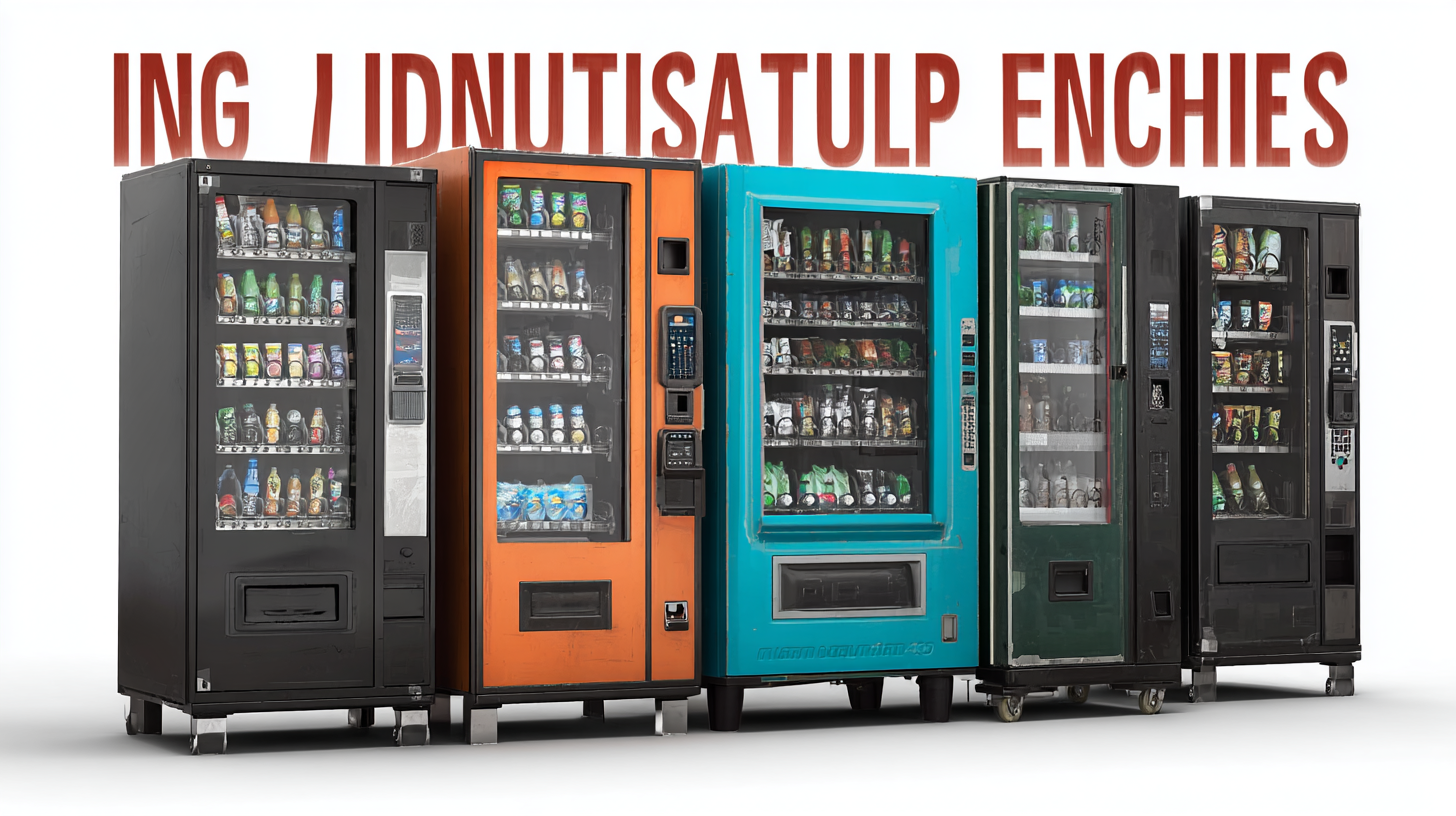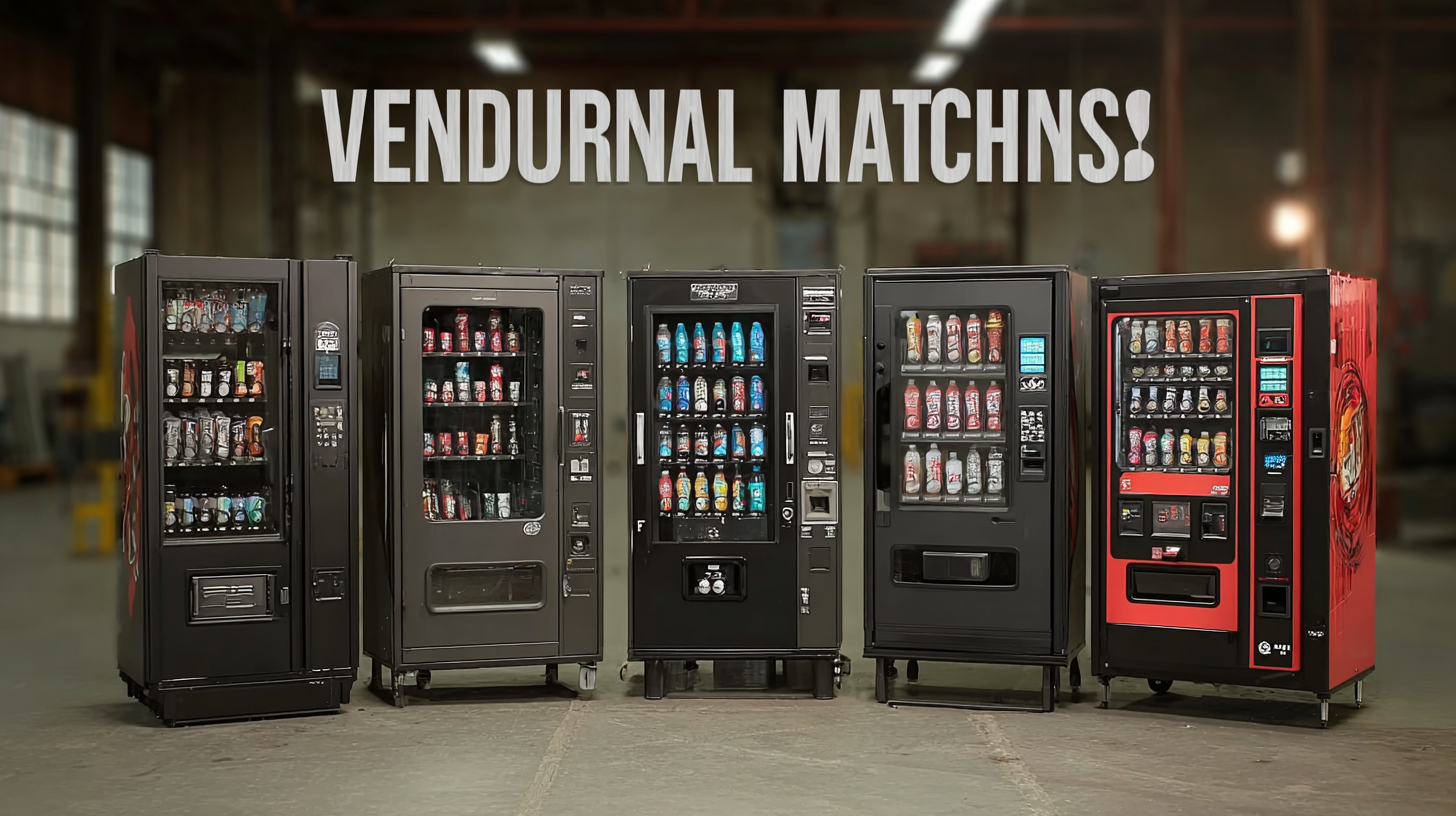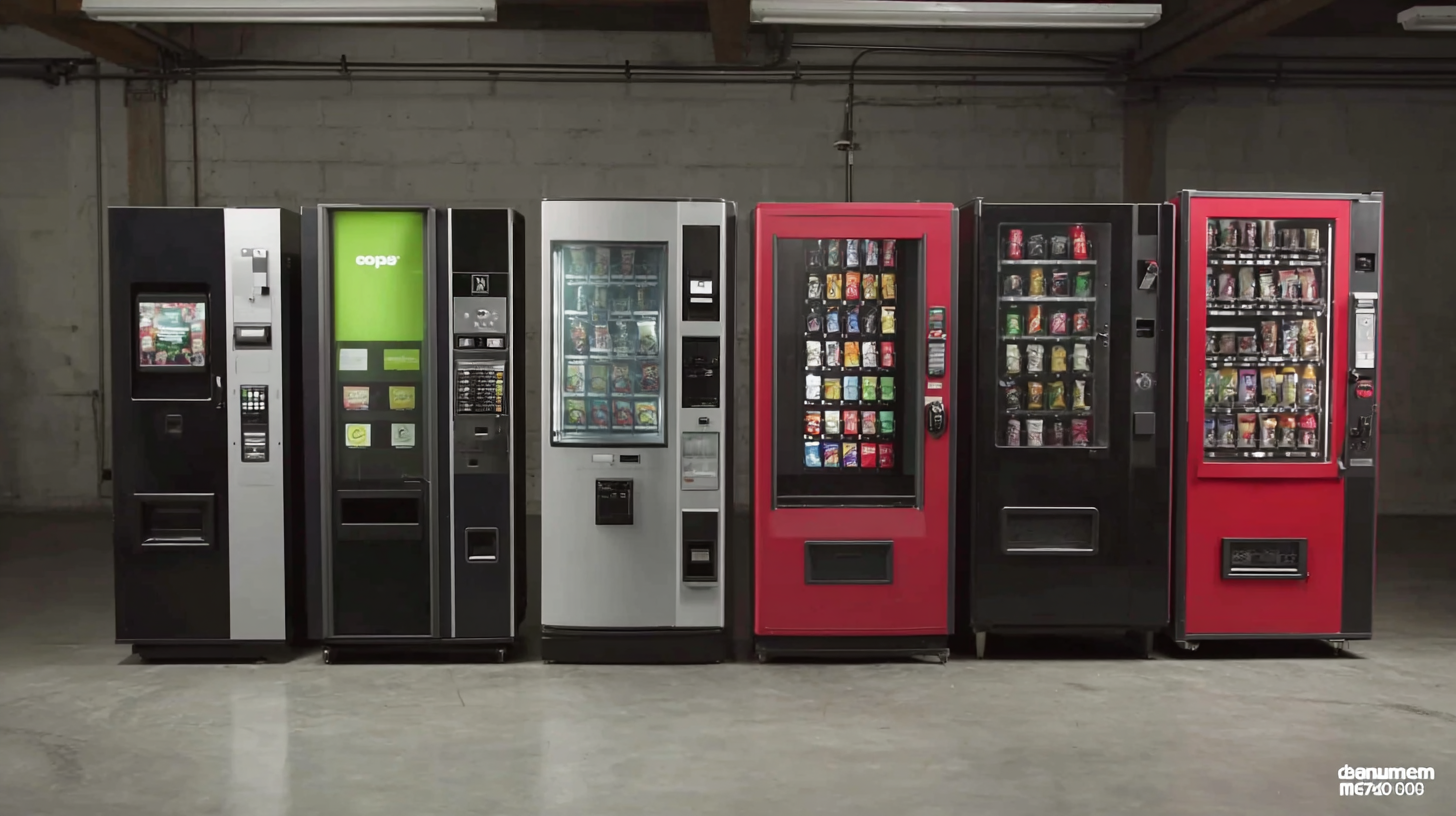10 Tips for Choosing the Best Industrial Vending Machines for Your Business
In today's fast-paced industrial environment, optimizing supply chain efficiency is paramount, and industrial vending machines have emerged as a transformative solution for businesses seeking to enhance their inventory management. According to a report by MarketsandMarkets, the industrial vending machine market is projected to reach $3.7 billion by 2025, growing at a CAGR of 10.1%. This growth is driven by the increasing demand for automated inventory control and reduction of waste in manufacturing and maintenance operations.

As companies strive to improve productivity and reduce operational costs, selecting the right industrial vending machines becomes crucial. In this blog, we will outline ten essential tips to help businesses choose the best industrial vending machines that align with their operational needs, ensuring they maximize efficiency and streamline their supply processes.
Understanding Different Types of Industrial Vending Machines for Your Needs
When it comes to selecting the right industrial vending machines, understanding the various types available is crucial for meeting specific business needs. There are predominantly two categories: free-standing vending machines and wall-mounted options.
 Free-standing machines offer versatility and can accommodate a variety of products, making them ideal for high-traffic areas in warehouses or manufacturing sites. In contrast, wall-mounted machines save floor space, making them suitable for smaller facilities or as supplementary units in existing setups.
Free-standing machines offer versatility and can accommodate a variety of products, making them ideal for high-traffic areas in warehouses or manufacturing sites. In contrast, wall-mounted machines save floor space, making them suitable for smaller facilities or as supplementary units in existing setups.
According to market analysis, the smart vending machine sector is projected to witness significant growth, expected to rise from $5.25 billion in 2025 to $10.80 billion by 2034, driven largely by advancements in cashless payment systems. This indicates a strong shift towards more technology-driven solutions that cater to the modern consumer's expectations for convenience and efficiency. The demand in the retail vending machine market is also propelled by user preferences, highlighting the need for businesses to choose vending machines that not only satisfy immediate operational needs but also align with future technological trends.
Evaluating Key Features: What to Look for in Vending Machines
When selecting the best industrial vending machines for your business, it's essential to evaluate key features that can significantly impact efficiency and user experience. According to a report by IBISWorld, the industrial vending machine industry is projected to grow at an annual rate of 4.5% over the next five years, highlighting the increasing reliance on these machines in various sectors. One critical feature to consider is the machine's inventory management system. Advanced vending machines equipped with real-time tracking can provide insights into stock levels, reducing downtime and ensuring that essential items are always available. This capability is not just a convenience; a study by the National Association of Vending suggests that companies utilizing intelligent vending solutions have seen a 30% increase in product accessibility.

Another vital aspect is the payment options available on the vending machine. With a significant shift towards cashless transactions—projected to reach 70% of all vending transactions by 2025—businesses must choose machines that support various payment methods, including mobile wallets and contactless cards. This flexibility not only enhances customer satisfaction but also aligns with the overall trend of digital payments within the industry. Furthermore, a machine with robust security features will help prevent theft and improve operational integrity, ensuring that your investment remains protected. Investing time in evaluating these features will ultimately lead to more efficient and reliable vending solutions tailored to your business needs.
The Role of Product Selection in Your Industrial Vending Machine Strategy
When developing an effective industrial vending machine strategy, the selection of products to stock is crucial. Businesses must consider the specific needs of their workforce and the items that will enhance operational efficiency. Stocking essential tools, safety gear, and other workplace supplies not only ensures employees have access to what they need at the right time but can also reduce downtime and streamline workflows. Companies should conduct regular assessments to pinpoint which products are most in demand and adjust their inventory accordingly, ensuring that the vending machines are always aligned with the evolving needs of the business.
Furthermore, the importance of product variety cannot be overstated. A diverse selection encourages more frequent use of the vending machines, which can lead to increased satisfaction among employees. Incorporating smart technologies, like AI-powered vending machines, can further enhance the product selection process, optimizing inventory management and predicting consumer preferences. By focusing on thoughtful product selection, businesses can leverage industrial vending machines not only as a convenience but as a strategic tool that contributes to overall productivity and employee satisfaction.
Assessing Cost and ROI: Making the Right Financial Investment
When selecting industrial vending machines, it's crucial to assess the cost and potential return on investment (ROI) these machines can offer your business. Start by understanding your budget constraints and evaluating different pricing options. Remember to consider not only the initial purchase price but also ongoing maintenance costs, which can significantly impact your overall investment. Choosing machines with modular designs might provide flexibility for future expansions without a hefty price tag.
An effective way to gauge ROI is to analyze the time and resources saved by automating inventory management. For example, implementing an industrial vending machine can minimize downtime caused by employees searching for tools or equipment. Look for machines that can provide real-time inventory tracking and analytics; this feature can help you make informed purchasing decisions and reduce waste. Additionally, consider machines that offer robust security features, as protecting your assets is pivotal in maximizing the returns from your investment.
10 Tips for Choosing the Best Industrial Vending Machines for Your Business - Assessing Cost and ROI: Making the Right Financial Investment
| Feature | Description | Cost (USD) | ROI (Years) |
|---|---|---|---|
| Machine Size | Compact design for limited spaces | $3,000 | 2 |
| Product Capacity | Holds up to 500 items | $4,500 | 3 |
| Payment Options | Accepts cash, credit, and mobile payments | $2,500 | 1.5 |
| Software Integration | Compatible with enterprise resource planning (ERP) systems | $1,000 | 4 |
| Maintenance Cost | Annual maintenance plan available | $500/year | N/A |
How to Integrate Technology for Enhanced Vending Machine Efficiency
In today's fast-paced industrial environment, integrating technology into vending machines is crucial for enhancing efficiency and optimizing operations. By incorporating advanced inventory management systems, businesses can monitor stock levels in real-time, reducing the risk of shortages or overstock situations. Automated alerts can notify managers when items are running low, allowing for proactive restocking and minimizing downtime. This not only streamlines the supply chain but also ensures that employees have access to the necessary tools and resources when they need them.
Furthermore, smart vending machines equipped with data analytics can provide valuable insights into usage patterns and consumer preferences. By analyzing this data, businesses can make informed decisions about which products to stock, tailoring their offerings to better meet the needs of their workforce. Additionally, features like cashless payment systems and mobile app integrations can enhance the user experience, making transactions faster and more convenient. Ultimately, leveraging technology not only improves the performance of industrial vending machines but also contributes to increased employee satisfaction and productivity.
